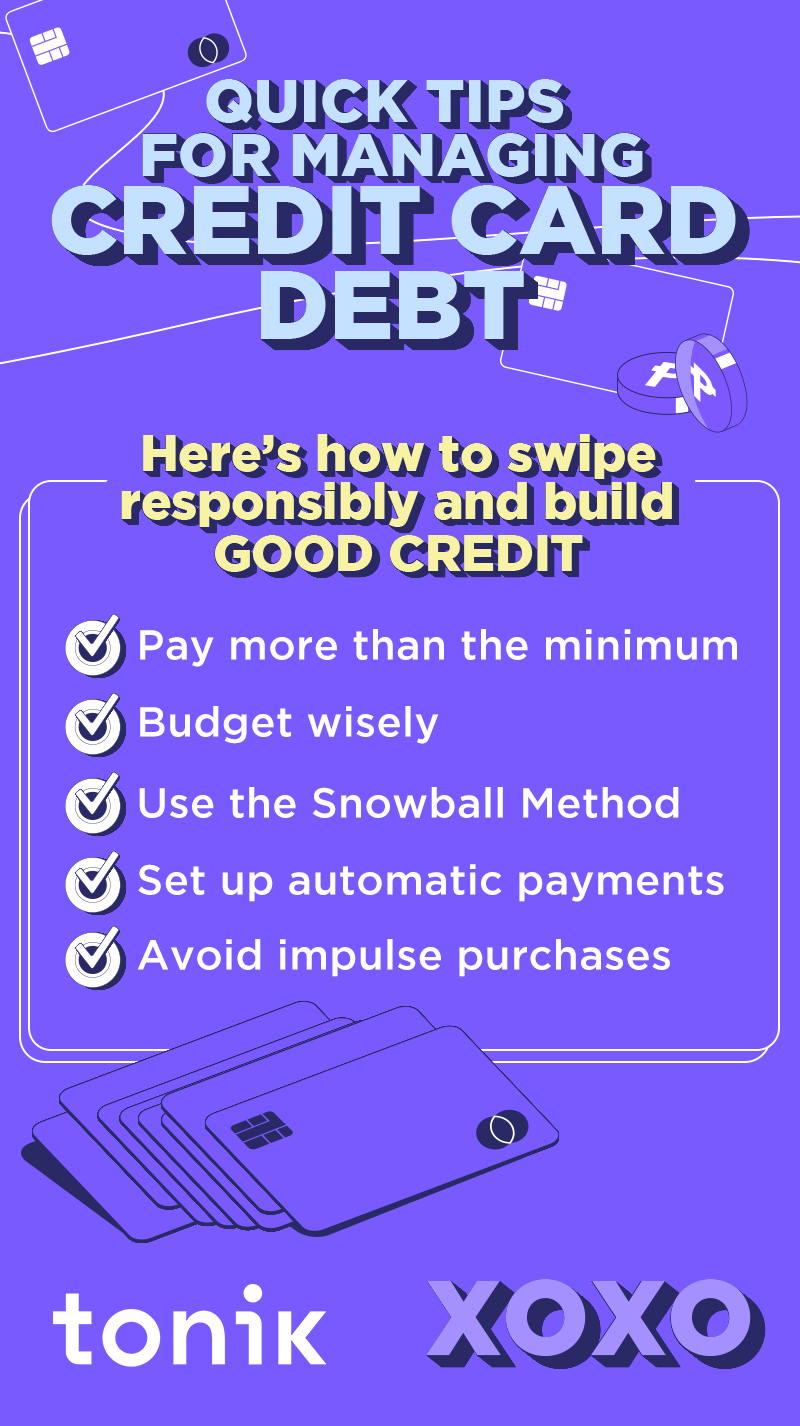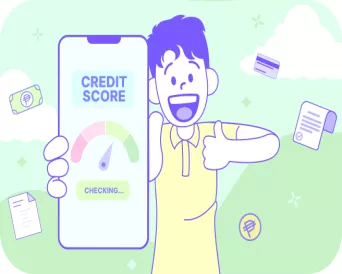Is that a credit card in your pocket, or are you just happy to see us?
We’re guessing it’s a credit card since everyone has at least one of those magical shopping wonders these days. The thing that everyone doesn’t have is the ability to manage their credit cards and credit accounts in general.
It’s essential, because not only will this give you the financial flexibility you need. It can also help you build a healthy credit score that can open doors to your dreams.
Sit back, relax, read this blog, and learn to navigate credit cards like a pro!
Table of Contents

Types of Credit Cards
Did you know that there are several types of credit cards available? Each one serves a specific purpose and with their own set of requirements. Let’s go through each one:
- Secured Credit Cards: These are backed by a cash deposit you make upfront. It's like a safety net for the bank and a great starter for anyone looking to build or rebuild credit.
- Unsecured Credit Cards: These don't require a cash deposit and are the most common type of credit cards.
- Rewards Cards: Perfect for earning points, miles, or cash back on purchases.
- Balance Transfer Cards: Ideal if you're looking to consolidate debt and enjoy lower interest rates.
- Student Credit Cards: Tailored for students looking to start their credit journey early.
Choosing the Right Credit Card

Just like there are different types of credit cards, there are also different types of users. If you’re a spender, rewards cards could sweeten each purchase. If you’re dealing with existing debt, a balance transfer card might be your best pick.
Before applying for a credit card (or other credit accounts) make sure you consider your needs, wants, and financial capabilities carefully!
Credit Cards and Your Credit Score
Credit cards are not just spending tools. Just like the Tonik Credit Builder Loan, they can help you build a solid credit history. Here’s how you can use your credit card to positively affect your credit score:
- Payment History: Always aim to pay your bills on time. It’s the single most important factor affecting your credit score.
- Credit Utilization Ratio: This is the second most crucial factor. All this ratio means is that it’s best to keep your credit card balances low compared to your credit limits to help your score soar.
- New Credit Inquiries: Every time you apply for a new credit card, a hard inquiry is made, which can lower your credit score. That’s why you should only get a new credit card when it’s necessary.
To help you decide better on whether you’re willing to lower your credit score for a credit card, you can actually track your credit score online. Read our article about how to check credit score in the Philippines here.
Tips for Managing Credit Card Debt
Managing credit card debt isn’t easy, but it’s not impossible either. Here are a few tips you can follow to successfully manage credit card debt. You can also apply these tips to managing your other credit accounts like personal loans!
- Pay more than the minimum: This reduces your balance faster and decreases interest costs.
- Budget Wisely: Keep track of your spending and set limits to ensure you’re not spending more than you can afford.
- Use the Snowball Method: Pay off the credit card with the smallest balance first while only making minimum payments on the others. Then, move on to the next smallest until you’ve paid them all off.
- Set up automatic payments: Set up automatic credit card payments on your banking apps so you never miss a due date. That way, you won’t have to bother with late fees! Or say yes to push notification messages from your finance apps to remind you of your due dates ahead.
- Avoid impulse purchases: Use cash or debit when you can. Swiping your credit card should be your last option, especially when it’s something expensive during a retail therapy sesh.
Play Your Cards Right
Credit cards are powerful tools for building credit, but they require wisdom and discipline. Remember, every swipe impacts your credit score.
Use your cards wisely, pay off your credit account balances diligently, and watch your credit score climb the ladder to financial success. Happy swiping, and here’s to building a bright financial future!
FAQs
What’s the impact of hard inquiries on my credit score?
A hard inquiry is when a lender checks your credit report to assess the risk of lending. This is common in all types of credit accounts, including credit cards, loans, and mortgages. Hard inquiries may cause your credit score to drop to a minor degree, but several inquiries can add up, making an even bigger impact.
Can a supplementary credit cardholder build a credit score?
Yes, a supplementary (or authorized) cardholder can build a credit score. If the primary cardholder maintains a good credit history, keeps balances low, and pays on time, the supplementary cardholder can benefit. This arrangement can be particularly beneficial for those looking to establish credit.
What is the minimum credit score needed to get approved for a mortgage/auto loan/personal loan?
The minimum credit score required varies by lender and can differ across credit accounts. Don’t want to leave anything up to chance? Make sure to contact banks directly and discuss their requirements and your financial profile.
How does closing a credit card account affect my credit score?
Closing a credit card account can affect your credit score by increasing your credit utilization ratio and potentially shortening your credit history. It’s usually wise to keep older accounts open unless they carry high fees or there's another compelling reason to close them.
What are the consequences of missing a credit card or loan repayment?
Missing a payment for your credit accounts have several consequences:
- Credit Score Impact: Payments more than 30 days late can be reported to credit bureaus, significantly lowering your credit score.
- Late Fees: Most lenders will charge a late fee.
- Increased Interest Rates: Some cards may apply penalty APRs, which are higher interest rates.
How many credit cards and/or loans should I have to build credit effectively?
It’s not just about quantity, luv. It’s also about diversity and quality! Spread your debt across various forms of credit, such as credit cards, a car loan, or a student loan, and manage them wisely. You can also add the Tonik Credit Builder Loan as a favorite on that list. Keep balances low and ensure payments are made on time
Can co-signing a loan affect my credit?
Yes, co-signing a loan can affect your credit. As a co-signer, you agree to take responsibility for the loan. If the primary borrower misses a payment, it will also impact your credit score. Additionally, the loan will appear on your credit report, which can affect your credit utilization ratio.






